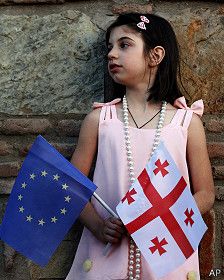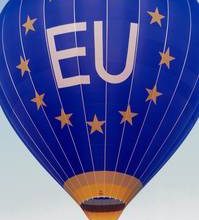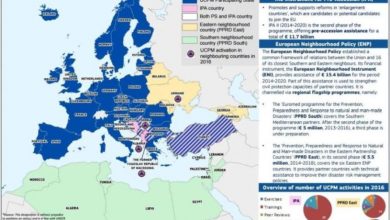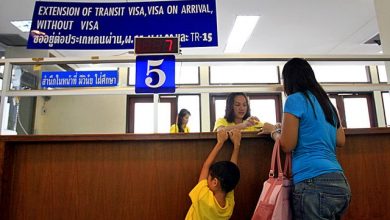Who benefits and why association with the EU is needed
Yanukovych’s refusal to sign an association agreement with the European Union was the main reason that forced people to go to the Maidan in late 2013.
To speak about the possible European integration of Ukraine, Georgia and Moldova from a purely legal point of view is somewhat incorrect today: the European Union has made it clear that the association is not officially a step towards joining the European Union.
If the association agreements referred to the accession of these countries to the European Union, the chances of ratification of these agreements in the European Union, where the opinions of countries regarding expansion are very different, would be nil.
In European law, the association itself does not mean a step towards EU accession: similar agreements were previously signed, for example, by Chile, the Palestinian Authority and many other states and state entities. It would be absurd to say that Palestinians are now waiting for entry into the alliance.
Thus, association is not an introduction. Despite this, in the context of Ukraine, Georgia and Moldova, an association is something much more important – both politically and legally.
The path of peace and freedom Association means a civilizational choice: it is the choice of the European path of development, which is marked by pluralistic democracy, the rule of law, the protection of human rights and freedoms, respect for international law and national sovereignty. In a way, this is a departure from the dictatorship of Russia, where not one of these principles, which are fundamental in the European context, is adequately implemented. Confirmation of this is the annexation of Crimea, a confrontational and propaganda stance towards many members of the international community, the current state of the judiciary and legislation in the country.
disagreements on this subject cannot but arise in the light of the huge number of cases that Russia loses in a human rights court; a clear position of the international community in Crimea; Russia’s exclusion from the G7 and the growing regime of international sanctions.
The Association, not even supported by the prospect of joining the Union in the near future, is a clear signal that Ukraine, Georgia and Moldova have chosen the civilizational path of peace and freedom, where justice is not a farce, where war is not a method, and where rights and freedoms are respected.
This choice comes at a price. And the fact that the countries we are talking about are willing to pay it is a good sign, even under pressure from Russia. Russia is not a substitute for Europe: escalating tensions, ignoring international law and the policy of gas discounts for pocket regimes such as Belarus Lukashenko are not attractive alternatives to the European development path.
Many Ukrainians perceive their European choice as a ticket to a happy future
In other words, the three countries made a choice, but they essentially had no choice. To become Belarus is not a choice in this context. Russia cannot offer a civilizational alternative: there is no justice, respect for law, long-term economic development with Russia. Russia does not offer a future.
Money doesn’t solve anything
The EU’s Eastern Partnership policy scared Moscow: Russia realized that it could offer nothing to other countries but money. But on the basis of money, it is impossible to invent a civilizational idea. Money is a resource, not an ideology or a development path. In bad hands, they mean stagnation and destruction.
Money does not have the slightest significance in the medium or long term development of the state at the level of basic civilization elections. And these elections – in Ukraine, Moldova and Georgia – were clearly identified. Russians, Belarusians, Azerbaijanis and residents of some other countries were deprived of this choice.
The question is not who will give Ukraine or Moldova more money; the question is whether they are ready to take their future into their own hands. The European Union is ready to help: the Union’s interest is to create rich and free countries on its own borders. When Ukraine, Moldova and Georgia become such, the question of their inclusion in the Union will arise by itself and will not raise objections.
Now the cards are in their hands: association agreements give unprecedented access to the European market, but they also entail unprecedented requirements that must be fulfilled: to modernize all aspects of their statehood. Unpopular and costly in the short term, these investments can bear fruit.
Give 10-15 years – and in the conditions of association, they will become other states, closer to what EU citizens associate with “normality.” They will become normal countries. And normal countries can become friends of the Union and part of it.
But in the short term, the benefit from the association is obvious: it’s worth mentioning at least the freedom to travel to Europe without visas, which the Russians are unlikely to have while the current regime is in power.
Thus, an association is not yet an introduction and cannot be such; association is something infinitely more important: a civilizational choice in favor of the formation of a “normal state”, a state with a future.
Joseph Diskin, Russian economist and political scientist
I will not touch on the political dimension of agreements and the issue of civilizational choice – this is the business of citizens and state authorities of these countries. But, as an economist, I see unmeasured risks.
In fact, this is a new edition of shock therapy, through which Russia passed in the early 90’s. It will be necessary to radically change the vast space of institutions and citizens’ activity models, to bridge the gap between the new written law and traditional social practices.
Moreover, since full membership in the EU, when the instructions of Brussels are necessary, if you want, do not want to, be carried out while it is not in question, each step will become the subject of internal and external bargaining.
The local business knows the Russian market well, but the European market does not know very well. For example, Ukraine has established relations only according to the traditional nomenclature – metal, grain and basic chemistry.
Large Western investments, in my opinion, are possible only in high-quality agriculture, which will bring, along with benefits, the growth of agricultural unemployment. A rush of capital even in the “screwdriver” industry is unlikely: in Southeast Asia, labor is even cheaper, more laborious, and there are no traditions of social protection at all.
The adaptation period in the most optimistic version will take five to six years. To survive this time, you need either very generous financial assistance, which the signed agreements do not provide for, or belt tightening.
In Eastern Europe and the Baltic countries, the idea of independence from Moscow served as psychological compensation: for the sake of freedom we are ready to endure. As I understand it, the authorities in Kiev, Chisinau and Tbilisi are trying to play the same card. To what extent it will work, especially in Ukraine, is a question no one knows the answer to today.
The only acquisition in the near future is a visa-free regime, which Moldova has already received, and Ukraine and Georgia are likely to receive soon. For the EU, this decision will not be easy, as it will lead to increased migration tensions and direct fuel for Euro-skeptics and right-wing extremists, but Kiev and Tbilisi have a strong trump card: we are making unthinkable sacrifices, so give our citizens at least something!
Dimitri Kochenov
EU Constitutional Law Professor, Doctor of Law, Groningen
This post is also available in:
 English
English  Русский (Russian)
Русский (Russian)






